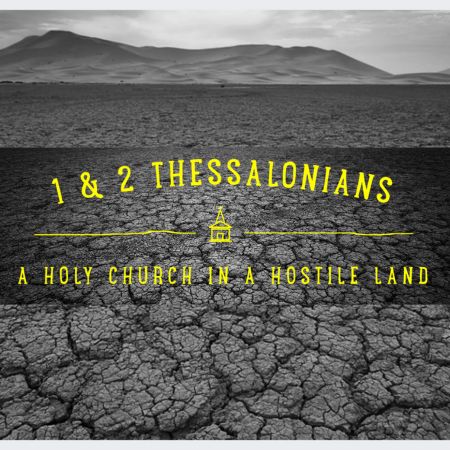Even though we will look at only one verse today, it is packed with deep theological truth. Paul lays out what a church really is. Certainly, it is what the church at Thessalonica was, but it is also what we ought to be.
Sermons on Grace
We’ve reached the end of Hosea, and God concludes this book not with judgment but with grace. And that grace comes in the form of an invitation to return to Him. This turning away from false gods to the one, true God is picked up in the New Testament with the idea of repentance.
This week we’re right back in the thick of the mire. The people have once again, as expected perhaps, spurned God’s grace and love as they continue to run back to those gods who give no grace. As hard as it may be to come to this recurring theme of rebellion time and again, it is necessary because we tend to be Good-News-forgetful people. We need to hear the truth that we all are sinners in need of a Savior, and we need to hear it again and again and again.
The passage this week is very much a cautionary reminder that God’s judgment is real and sure! Yes, God is gracious. He never ceases to be HOLY and this holiness always has and always will include both His gracious loving-kindness, and His perfectly right justice. We will look at some of the false fortresses and the one true fortress in the message.
This week we introduce the series on Hosea. It’s not primarily the prophets who speak but God. This book is not just for the Israelites but us as well.
Paul instructs Timothy to establish elders and leadership in the various Cretan churches that they had planted together. In his explanation of what the character of an elder ought to be, he demonstrates that this the life that the believer should aspire to. In many ways, there is nothing overly special about the list, but in contrast to the living of the culture, this stands out as radical or bold. Again the emphasis for living an Gospel-centered life does not come from the command itself (legalism) but from the grace of God given to us in Jesus.
As Paul opens his letter to Titus and the Cretan church, Paul reminds Titus that the Gospel of Jesus was not something that happened as a response to sin as if God didn’t know that it was going to happen. Instead it was his plan to pour out his grace on us to give us hope and demonstrate his love for us. The grace of God in Jesus is a recurring theme. The emphasis becomes on the connection between grace and action. Such is the overwhelming nature of God’s grace that we are to respond to his grace wholeheartedly and without reservation.
We are powerless to free ourselves from sin and death, but God graciously frees us from impossible situations. In watching Moses get drawn out of the water by the daughter of Pharaoh, we are beautifully reminded that God desires to draw us out of sin. In this message, we will look at the extent and power of sin in our lives and how it leads to death. With this we will find the passionate grace of God through his son, Jesus, in which he seeks to draw us out of the impossible situation of sin and into a new life and relationship with God.
God is a gracious father who longs to be in relationship with His children
Jesus is a friend of sinners and will welcome all who are willing to receive His invitation. Humble people realize that they are sinners, and they also receive the friendship of Jesus






